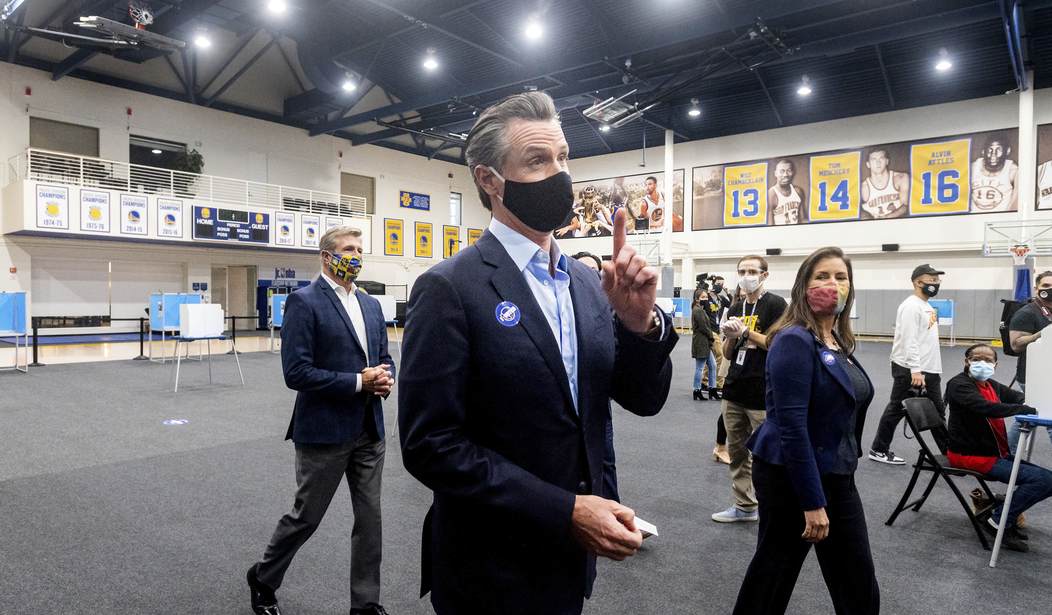To many Americans, it feels like March 2020 never ended. And now, on the eve of the approval and distribution of live-saving coronavirus vaccines, state and local officials across the country are tightening rules and moving forward with renewed lockdowns. While it’s understandable for states to do everything in their power to slow the spread of the deadly disease, lockdowns only succeed in creating mass misery without making a dent in COVID-19 cases. Instead of creating restrictions with a broad brush, governors and lawmakers must work together with businesses and households to keep the coronavirus in check. Millions of lives and livelihoods (businesses) depend on it.
What’s old is new again is a familiar saying that usually sparks a warm feeling of nostalgia. But, in 2020, that nice feeling is shattered as businesses feel the bite of renewed government lockdown orders. Los Angeles (L.A.) County is taking the drastic step of shuttering indoor and outdoor dining, despite little evidence that the virus really spreads that much outside. L.A. County’s Department of Public Health is warning residents “to stay home as much as possible,” banning public and private gatherings except for protests and religious services. And once again, there’s the arbitrary dichotomy between “essential” businesses (limited to 35 percent capacity) and “non-essential” operations (limited to 20 percent capacity). On the other side of the country, New York Governor Andrew Cuomo bizarrely imposed a 10 pm curfew for restaurants and bars licensed by the State Liquor Authority. In promulgating these onerous regulations, Governor Cuomo failed to explain why capacity restrictions weren’t enough for late night dining and drinking. Meanwhile, new travel restrictions between states makes, say, crossing from Vermont or New Hampshire into Massachusetts a needless ordeal. Businesses along these borders reasonably worry how strictly these restrictions will be enforced, and the resulting impact on their bottom-lines.
Recommended
It’s hard to deny that at least some restrictions are warranted to beat back the coronavirus pandemic. But, unless these mandates are reasonably imposed and grounded in scientific research, restrictions won’t do much good. Research suggests that being in close contact indoors is 19 times more likely to result in transmission than close proximity with others outdoors. While restaurants should be especially careful in designing outdoor dining spaces to allow air to come in, outdoor transmission risks are low. Something like 6 percent of cases are contracted outdoors, indicating that the outside air rapidly dilutes any trace of the virus. Despite this abundance of evidence and ample criticism from public health experts, L.A. County refuses to reconsider their ban on outdoor dining.
Coronavirus curfews suffer from a similar lack of input from scientists and public health experts. According to Johns Hopkins Center for Health Security senior scholar Dr. Amesh Adalja, “There’s nothing magical about a special time of night when the virus is less or more likely to transmit. But I do worry about, if people have no place other to congregate than in their homes, they’re going to do that more now that they don’t have the opportunity to go to a restaurant where they’re likely to be monitored by the wait staff, the managers there, to make sure they are social distancing.” This speaks to a larger problem with misguided coronavirus restrictions: pandemic fatigue. When people inevitably grow weary of restrictions that make little sense and seem hypocritical, they respond by congregating in ways far riskier than the activities prohibited by the government.
This fatigue isn’t merely the result of a lack of willpower that can be fixed by misguided appeals to collectivism. As seen in Agudath Israel’s recent Supreme Court case, religious Americans view overly strict rules as unacceptable infringements on their hard-fought freedoms to worship the way they see fit. When restrictions go overboard, these congregants often take matters into their own hands and gather en-masse in their homes.
Fortunately, the Supreme Court ruled that government mandates on religious institutions must be “narrowly tailored” to serve compelling state interests such as public health. There’s no need to have a 10-person limit in a synagogue that can seat 500 congregants, when the state can simply enforce capacity limits that take into account how large religious buildings are. It stands to reason that larger churches and synagogues can safely host more congregants, and state and local laws must reflect this.
Ultimately, courts are not legislatures. It is up to states and localities to craft reasonable rules that are based on science and don’t drive residents toward risky activities. Endless lockdowns and onerous restrictions are not the answer.
Ross Marchand is a senior fellow for the Taxpayers Protection Alliance.

























Join the conversation as a VIP Member